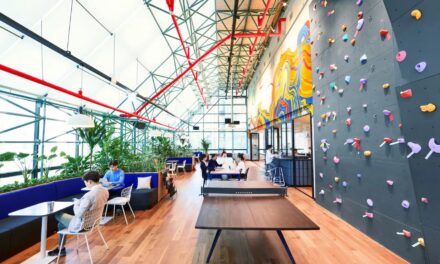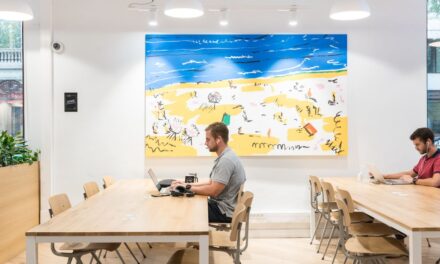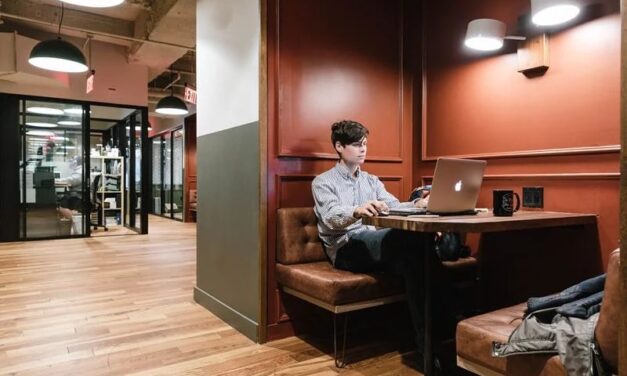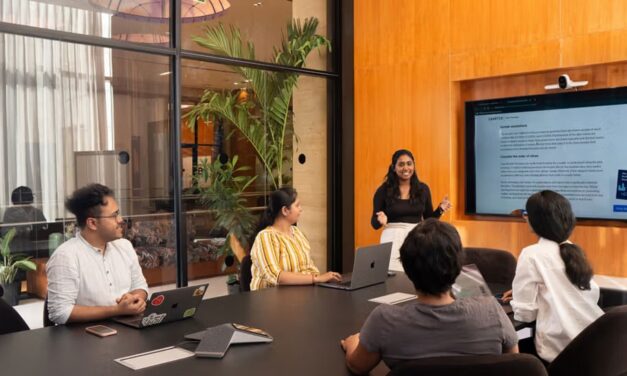Best Technology for Coworking Spaces in 2025
Posted by Kruti Shah | Apr 24, 2025 | All Latest, Spaces
From Studio to Workspace: What Content Creators Need in a Coworking Space
Posted by Annie Button | Apr 16, 2025 | All Latest, Spaces
Work
LatestIntegrating AI in Coworking Spaces: Enhancing Collaboration and Efficiency
by Nahla Davies | May 1, 2025 | All Latest, Spaces, Work
Explore the practical applications of artificial intelligence at coworking spaces, including the subtle shifts and exciting future possibilities.
-

Here’s Why Hybrid Work Environments Benefit Different Personality Types
by Nahla Davies | Mar 25, 2025 | All Latest, Fun, Work
-

How to Ensure Great Collaboration at Your Hybrid Workplace
by Nico Prins | Mar 19, 2025 | All Latest, Work
-

Work Smarter, Not Harder: The 80/20 Rule’s Secret to Productivity
by Howie Robleza | Feb 13, 2025 | All Latest, Work
Play
LatestRanking the World’s Fastest (& Slowest) Internet Speeds
by Kelly Konya | May 27, 2019 | Play
Have you ever wondered which countries have the fastest, and slowest, internet speeds? Before you book your next coworking destination, it may be worth taking a look at the locations with the speediest download and upload times.
-

Skype Alternatives for When You’ve Pulled Your Hair Out
by Gail Palethorpe | Apr 16, 2019 | Play
-

-

4 Luxurious Coworking Spaces
by Cameron Chardukian | Jan 29, 2018 | Play
Spaces
LatestThe Rise of Rural Coworking Spaces: Fostering Local Talent in Small Towns
by Nahla Davies | Jun 25, 2025 | All Latest, Spaces
Rural coworking spaces are turning empty buildings into community centers, giving locals and transplants a reason to stay, create, and thrive.
-

-

-

Best Technology for Coworking Spaces in 2025
by Kruti Shah | Apr 24, 2025 | All Latest, Spaces
Trending this week
Coworking’s New Role: Building Stronger Niche Professional Communities
by Nahla Davies | Apr 8, 2025 | All Latest, Spaces
Learn why niche coworking spaces offer a blueprint for how physical workspaces can adapt to meet the diverse demands of professional communities.
-

Embracing the Digital Nomad Lifestyle in Coastal Spain
by Annie Button | Mar 26, 2025 | All Latest, Spaces
-

Is Your Coworking Space Half Empty? Here’s the Fix
by Helga Moreno | Feb 18, 2025 | All Latest, Spaces
-

2025 Predictions: What’s Next for Hybrid Work Models?
by Howie Robleza | Jan 7, 2025 | All Latest, Fun, Work
-

Most Recent


Best Technology for Coworking Spaces in 2025




Is Your Coworking Space Half Empty? Here’s the Fix




Hot Desking 101: Everything You Need to Know
Faces
LatestCraft Your Content Episode #42: Writers’ Rough Drafts – Mason Currey
by Elisa Doucette | Mar 8, 2019 | Faces
This episode first appeared on Craft Your Content. You can listen to more episodes of Writers’...
Places
LatestWorking On the Go: 7 Last-Minute Coworking Spaces To Check Out in London
by Howie Robleza | Nov 25, 2024 | All Latest, Places, Spaces
Next time you're in London, check out one of these 7 coworking spaces to boost your productivity, connectivity, and enjoyment of the city.
-

5 Best Coworking Spaces in Warsaw, Poland
by Miles Oliver | Jul 10, 2023 | All Latest, Places, Spaces
-

Here are the Best Cities Around the World for a Working Vacation
by Nahla Davies | Feb 2, 2023 | All Latest, Places
-

5 Best Flex Offices in Bristol
by Wesley Cherisien | Oct 4, 2021 | All Latest, Places, Spaces
Happenings
LatestJoin the Webinar Tomorrow: How to Automate Access to Your Coworking Space
by Helga Moreno | Jul 30, 2024 | All Latest, Happenings
On August 1, experts from Kisi and Spacebring will tackle the most time-consuming hassle for coworking owners: managing access control.
-

The Future of Coworking: 10 Trends That Will Shape 2023 and Beyond
by Nahla Davies | Jan 11, 2023 | All Latest, Happenings, Work
-

-

SURVEY: How Coworking Spaces are Navigating COVID-19
by Kelly Konya | Mar 21, 2020 | All Latest, Coworker, Happenings, Spaces













